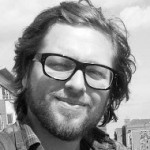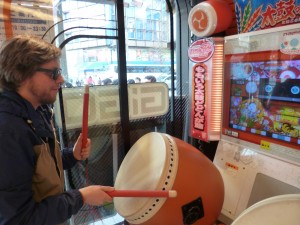 Adrian was one of the post-doctoral researchers he is responsible for the secondary analysis of surveys and mapping of the Manchester-Salford ecosystem. He now lectures in Quantitative Social Sciences at Loughborough University.
Adrian was one of the post-doctoral researchers he is responsible for the secondary analysis of surveys and mapping of the Manchester-Salford ecosystem. He now lectures in Quantitative Social Sciences at Loughborough University.
My interests lie at the intersection of social statistics and the sociology of cultural consumption and taste. I have a strong background in theoretical and applied statistics (BSc from Universidad Diego Portales and MSc from Pontificia Universidad Catolica de Chile) and I recently completed my PhD research in Social Change at the Cathie Marsh Institute for Social Research (University of Manchester).
My thesis, entitled ‘Multidimensional facets of cultural distinctions in the music domain: Meaning, context, and methods in contemporary societies’ (funded by the Economic & Social Research Council) is being published as a set of articles critically examining how music consumption is socially-structured, via application of innovative statistical techniques. Two articles have been published here in the Bulletin of Sociological Methodology and Journal of Consumer Culture. I have participated in national and international conferences and research visits, sustaining active networks with researchers in Austria, Chile, Israel, Finland, Serbia, and the UK. During 2013 I visited Michael Huber (University of Music and Performing Arts Vienna) and researchers of the Cultural Capital and Social Differentiation in Contemporary Finland project (University of Helsinki). In addition, I have close ties with the Institute of Fundamental Sciences of the Universidad Diego Portales in Chile.
My work on the Understanding Everyday Participation project is mainly oriented to the reanalysis of existing large-scale data (from what we call work package two) from three main sources: the Taking Part Survey, Scottish Household Survey and (1958) National Child Development Study. From this work, the project is able to develop its research questions and various innovative analytical approaches to understanding how patterns of participation vary across axes of social differentiation. It also interrogates ways in which we might quantify the value of different dimensions of participation, highlighting the importance of the study of methods for understanding participation. In turn, this helps contextualise findings from eco-systems, providing evidence of participation and its value at the macro level and offering opportunities for mixed methods exploration.
I am also currently working on mapping the social network of cultural institutions for the Manchester-Salford ecosystem, and this work will feed into understanding networks of participation across the other eco-systems.
As a (quantitative) methodologist and social scientist I am motivated by the methodological challenge behind the quantification of the value of participation as an element of social distinction (in the Bourdieusian sense). Moreover, I am particularly interested in knowing the (reciprocal) impact of methods on social theories and how this affects the way we operationalize practices and participation. My research contributes to the empirical dialogue between perspectives and methods.
 Although I consider myself a musical eclectic, I hate Latin/Tropical and I don’t enjoy gigs as I used to (except for classical) and my skills as a performer are limited to Japanese arcade machines.
Although I consider myself a musical eclectic, I hate Latin/Tropical and I don’t enjoy gigs as I used to (except for classical) and my skills as a performer are limited to Japanese arcade machines.
I have been building plastic scale models since I was a child. I am lucky enough to have my own workshop/mancave (aka desk). My engagement goes beyond practice: I’m proud member of a local club (Bolton IPMS) and I run a personal blog (to rest from rigid academic English, I publish in Spanish). I also like to watch movies, TV series (ideally the whole season in one sitting), motor sports and road cycling. I also have an aversion to football or sports involving balls, which might stem from ‘only child wearing glasses’ trauma.
